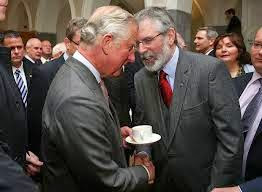I was reading about the present Pope the other day, and it brought to mind memories of the Falklands War. Or perhaps I should say Conflict, since war was never declared. And perhaps I should say Conflict over the Malvinas, to give the Spanish name for those islands, since that’s what the Argentinians call them.
What’s the link to Pope Francis? The Conflict brought to an end the military dictatorship in Argentina. That, incidentally, is why I always think the Argentinians won, even if they didn’t keep the islands: they got rid of one of the bloodiest and most brutal dictatorships in their troubled history, while we were stuck with Thatcher for another seven years, followed by further Tory government under John Major for another five after that.
It wasn’t just the supposed ‘victory’ in the Falklands that kept Thatcher in power and gave her a landslide election win the following year. She was helped by Labour having a brainstorm and going into that campaign led by the hard left, which played right into her hands. Sound familiar? Yes, just because we made that mistake 36 years ago doesn’t mean we’d learn from it and avoid it this year.
Francis, then Jorge Bergoglio and head of the Jesuit order in Argentina, lived through the dictatorship and its “dirty war”. Indeed, the darkest era in his past is that he may have contributed to two priests being tortured by the regime.
 |
| Esther Ballestrino A significant influence on Pope Francis |
Eventually, her daughter was released. But Ballestrino kept turning out with the other protestors. Unfortunately, the group was inflltrated by a man called Alfredo Astiz, from Naval Intelligence, nicknamed the ‘blond angel of death’. When the group published an advertisement listing the names of the ‘disappeared’ – the people abducted and about whose destiny no information was available – Astiz arranged for five women, including Ballestrino, to be arrested. They were tortured and eventually loaded, heavily drugged, onto a ‘death flight’: a plane that took them out to sea where they were dropped, hands and feet bound, out of the back of the aircraft.
So Esther Ballestrino died, one of the great sorrows in Pope Francis’s life.
And what memory did this conjure up in me?
I was conflicted over the Falklands War – conflicted over the Conflict. It strikes me as ridiculous that a group of islands off the coast of Argentina are possessions of a country, Britain, nearly 13,000 kilometres away. On the other hand, I loathed the Argentinian junta and deeply disliked the way they decided they could use military force to solve a territorial dispute. Above all, I disliked their obvious contempt for the views of the local population.
The use of military force and the trampling of the rights of the local inhabitants? It felt far too much like what the Israeli government does to Palestinians.
In any case, I can only be pleased with the way things worked out for Argentina, giving them a far more important victory than anything on the battlefield could have achieved: it freed them from a particularly nasty regime.
At the time, however, I remember being regularly sickened by the news. There was a day when I arrived in London from the suburb where I lived at the time, and caught sight of a startling headline in the local paper, the Evening Standard. The Argentinian cruiser Belgrano had been sunk by a British submarine, leading to the deaths of several hundred young conscripts. My stomach churned over that massacre, and even more over the gleeful celebration right-wing papers engaged in over it.
 |
| The Sun delighting in the deaths of conscript sailors |
Both Sweden and France wanted to question him for the murder of some of their nationals. But the Thatcher government, pleading the Geneva Convention, had him questioned by a British policeman and, when Astiz refused to answer any questions, decided to release him and send him home.
So a torturer and murderer was treated with kid gloves, while the young conscripts on the Belgrano were sent to their deaths with callous indifference.
 |
| Alfredo Astiz, torturer, murderer, released by Thatcher |
Astiz was at last sentenced to life in prison in 2011. By the Argentines. Who again emerge from this sorry story, as they did from the war, with more honour than a deeply flawed Britain.




